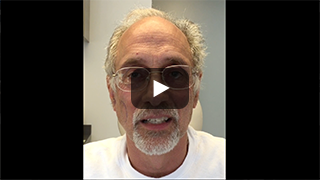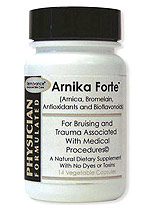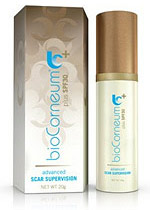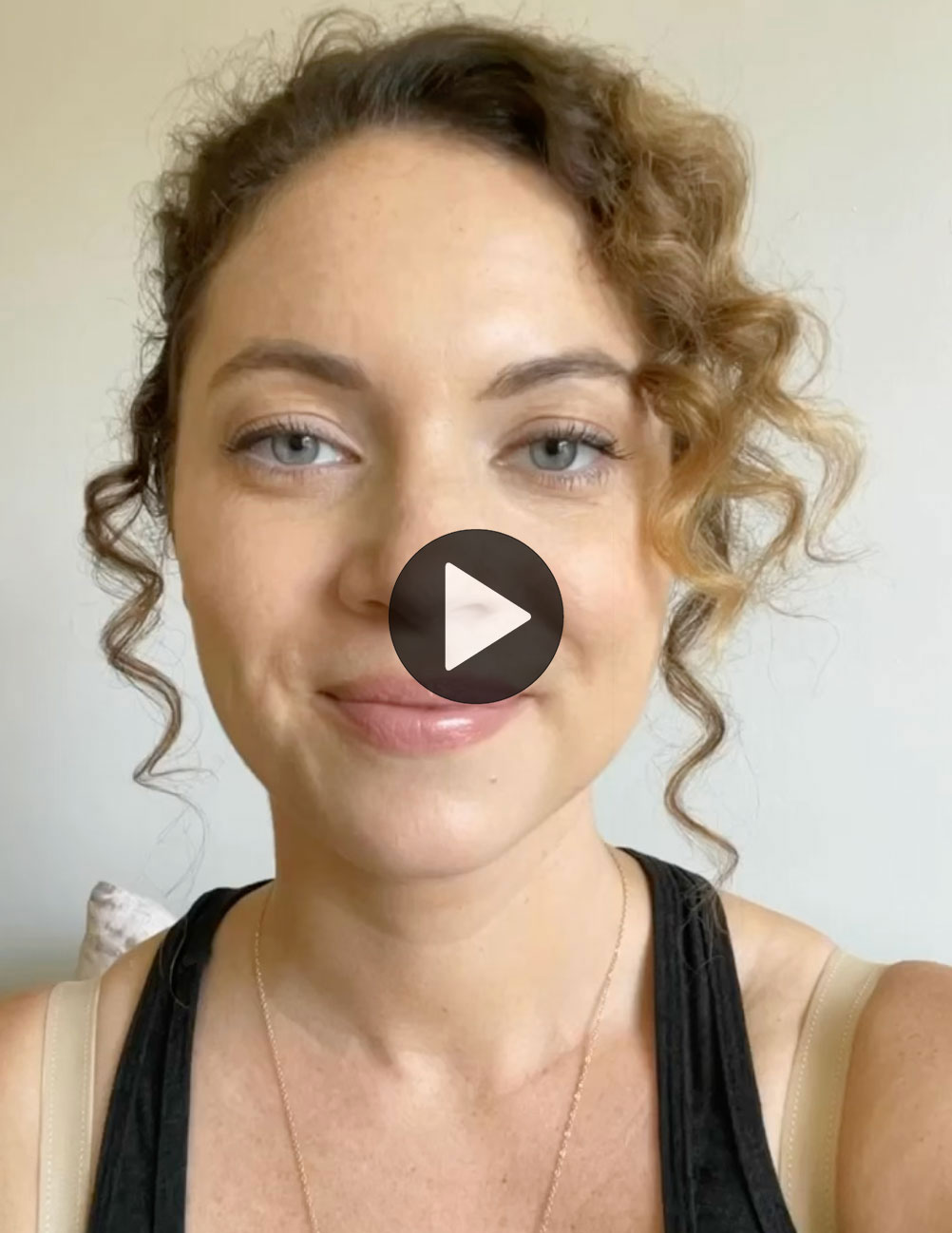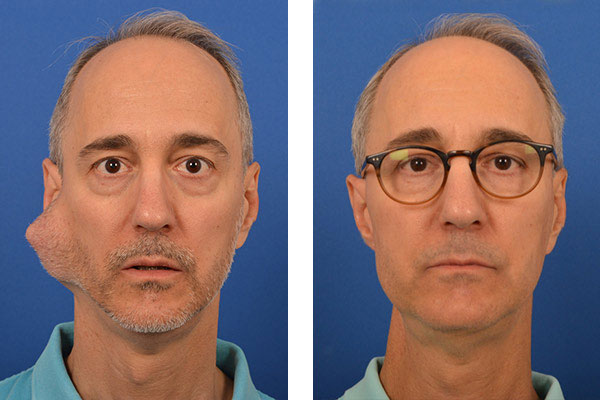- Pre-op testing must be completed. You will need to have the following tests: Chem 7, CBC, PT, PTT, EKG, Chest x-ray (age 45 and above, accepted up to 6 months prior to surgery)
- No dental work (including dental cleanings) 4 weeks prior to and 4 weeks following surgery.
- No laser or chemical peel treatments 4 weeks prior to surgery, and receive clearance from Dr. Larian/Dr. Azizzadeh for any laser or chemical treatments post-surgery.
- Do not dye your hair for 4 weeks following surgery. Prior to surgery, you can dye your hair.
Parotid Surgery Guidelines
Four Weeks Prior & Four Weeks Following Surgery, The instructions should be followed closely as listed below
See How You Will Feel Just 24 Hours After Parotid Surgery
Two Weeks Prior & Two Weeks Following Surgery
- Avoid all products that may interfere with blood clotting. Examples: aspirin, ibuprofen, or aspirin based products, NSAIDS (non-steroid anti-inflammatory drugs), vitamin E and supplements, garlic extract, alcohol (including wine and beer), herbal products, fish oil and fish.
- Avoid all smoking or nicotine products including nicotine gum and patch.
- Avoid all medications unless cleared through our office. Contact prescribing doctor for alternative medication if necessary and for the management of medications during your surgical procedure and recovery. Please NOTIFY US OF ANY MEDICATIONS you are taking. This includes over the counter, non-prescription drugs.
- Tylenol (acetaminophen) is allowed pre-op and post-op for pain and/or fever.
- Purchase: hydrogen peroxide, Q-tips and baby shampoo from a local pharmacy.
- Discontinue all diet pills or supplements 2 weeks prior to surgery.
- Avoid a diet that is rich in seafood.
Day/Night Before Surgery
- Wash face and shampoo hair using baby shampoo and gentle soap.
DO NOT eat or drink anything after midnight except as directed by doctor or staff. - You can have clear liquids up to 8 hours before surgery.
- You may take your usual asthma, heart, blood pressure or seizure medication with a small sip of water in the morning, unless otherwise advised.
- Fill and pick up all post-op prescriptions.
- Confirm all travel companion arrangements are in order for transportation to the surgery and pickup after. This companion should remain with you for 24 hours following surgery. YOU WILL NOT BE ALLOWED TO PROCEED WITH SURGERY UNLESS THESE ARRANGEMENTS ARE IN ORDER. YOU WILL NOT BE ALLOWED TO LEAVE THE SURGERY CENTER WITHOUT YOUR TRAVEL COMPANION.
Day Of Surgery
- Take any pre-op medication as instructed by doctor or staff, only if pre-approved.
- Remove contact lenses.
- Remove all jewelry and piercings.
- Leave valuables at home or with family members.
- Bring a form of ID, insurance card if necessary, and manner in which to pay for surgery center, if applicable.
- Wear loose comfortable clothing and sensible shoes. Bring warm socks, as it may get cold in the surgery suite.
- Do not sign any papers, make appointments or important decisions for 24 hours after surgery. The post-op medications may alter your judgment.
After Surgery
Parotid Surgery is minimally invasive and recovery is quick
Because of our minimally invasive approach to parotid surgery, recovery is typically quick and easy. In fact, almost every patient tells us they cannot believe how easy the overall recovery process was for them. You should feel improvement every day after surgery. We have put together some post-parotidectomy care guidelines so you know what to expect following your surgery. However, keep in mind that every patient heals differently, so these are merely general guidelines.
Day of Surgery
- When you wake up from surgery, you will have a head dressing and a plastic drainage tube.
- You will spend a few hours recovering at the surgery center. Once you are able to eat or drink comfortably you will then be discharged
- It is important for the first 24 hours you have someone you can count on to help take care of you.
- If you have a drain then it should be emptied at least twice a day and the amount recorded. This record should be brought to your first post-op appointment.
Post-op Appointments
Dr. Larian prefers to directly stay in touch with his patients, and you will always have access to him.
Post-Op Appointment #1
Your first post-op appointment will be the day following your surgery. At this appointment Dr. Larian and Dr. Azizzadeh will take a look at your incisions, surgical area and drain (if used) to make sure everything is beginning to heal properly. They will do the first dressing change and show you how to take care of the incision and apply the Velcro strap to apply pressure on the surgery area to help minimize swelling.
Post-Op Appointment #2
Your second post-op appointment is generally 3 – 4 days following your surgery. At this appointment, again the incision and area of surgery are checked. If a drain is used then it most likely be removed. Once there is less than 25cc of fluid in the drain over a 24-hour period it is usually ready to come out. Removing the drain is pretty painless as the tube is very small.
Post-Op Appointment #3
Your third, and usually final, in person appointment is generally 5 days following your surgery. At this appointment a final check of the area of surgery and incision. In majority of the cases the incision is closed using dissolvable sutures under the surface that do not need to be removed.
After the third post-op appointment our out of town patients are ready to fly back home and get back to their normal lives. Since every patient heals differently, we always recommend our out of town patients purchase an open-ended plane ticket to be safe. Our number one priority is making sure your body heals properly after your parotidectomy and we have found that our hands-on post-op appointments with Dr. Larian and Dr. Azizzadeh ensure this success. While, it is possible to fly home sooner after the surgery, we strongly encourage our patients to attend all 3 post-op appointments at the CENTER for Advanced Parotid & Facial Nerve Surgery.
Post-Op Appointment #4
Your fourth appointment is usually a virtual video or phone call appointment. This is to make sure the healing process is going well, and answer any questions you may have. You always have access to your doctor and can call or text him directly thereafter.
At Home Care
Incision
- Before you touch your face or clean your incisions, wash your hands with soap and warm water.
- Clean the incisions in front of the ear gently with a q-tip and hydrogen peroxide once a day.
- Antibiotic ointment (Neosporin, Polysporin, Bacitarcin) purchased over the counter, should be put on the incision twice a day for the first 10 days, followed by vitamin E ointment or bioCorneum for the next 2 months.
- Crushed ice in rubber gloves, cold compresses or frozen peas should be used for 72 hours on an hourly basis when awake.
- You might notice bruising, swelling and hardness around your incision. This hardness will peak at about 3 weeks and will disappear over the next 2 to 3 months. Firm massaging of the scar starting 2 weeks after surgery will help.
Drain
- If a drain is used, it should be emptied at least twice a day and the amount recorded. This record should be brought to your appointments until the drain is removed.
Dressing
- The surgical dressing wrap will be removed by your doctor at your first post-op appointment.
- A Velcro wrap will be provided which should then be wrapped around the head tightly to help reduce swelling. It will be worn 24 hours a day for the first week and only at nights, for the second week. The swelling in the area of surgery will increase the first several days.
- Swelling will be visible for 2-3 weeks.
Additional At Home Care Instructions
- KEEP HEAD ELEVATED WHILE RESTING, RELAXING, OR SLEEPING WITH 3-4 PILLOWS FOR AT LEAST 2 WEEKS FOLLOWING SURGERY. SLEEP ON YOUR BACK ONLY. Sleep is very important so lay down at an elevated angle that allows you to sleep.
- Once Dr. Larian feels you have healed well enough he’ll let you know that is appropriate to take a shower. For patients that don’t have a drain, that is usually 3 days after surgery. For those with a drain it is the day after the drain has been removed. You may shower with lukewarm water. When drying off, delicately pat dry. Do not soak in a bathtub or spend a prolonged time in the shower.
- No heavy exercise or yoga for 3 weeks following surgery.
- Keep all incisions protected from sun exposure for 3 months following surgery.
Post-Operative Diet Suggestions
- DRINK PLENTY OF LIQUIDS: Please drink as much water as possible, in addition to other liquids, such as Gatorade. Avoid sodas and caffeinated drink for the first couple days. AVOID SPICY OR SOUR FOODS OR LIQUIDS (INCLUDING CITRUSES) FOR 2 WEEKS AFTER SURGERY; these types of foods/liquids cause a surge of saliva to be produced and may cause saliva to accumulate in the area of surgery.
- Good, nutritious food on the first 2-3 days are very important in the healing process and will help you feel stronger sooner. Start with soft foods. Here are some soft food suggestions: mashed potatoes, warm soups, cooked/boiled vegetables, canned fruit, oatmeal, cream of wheat, baby food, yogurt, bananas, apple sauce, JELLO, pudding, fruit smoothies.
- NO SMOKING
- NO ALCOHOL
- NO diet foods. NO diet drinks. Your body needs the calories for proper healing.
- NO aspirin or aspirin based products (see attached list).
- NO salty or spicy foods.
- NO greasy food.
- NO hot temperature foods (warm is preferred) as it may cause bleeding.
- NO heavy or big meals. Start small and light, then slowly increase as tolerated.
If you have questions relating to your surgery outside of our regular office hours, please call us directly at (310) 461-0300.
Suggestions to Minimize Swelling, Bruising & Scarring
Arnika Forte is our preferred treatment for swelling and bruising
It is the only combined Arnica Montana and Bromelain capsule on the market and can only be purchased from a physician. Treatment starts the morning of surgery/treatment and continues for 6 days after: take 2 tablets at a time each day, for a total of 7 days until all capsules are completed.
BioCorneum (BC+), a self-adhering silicone gel with SPF 30
Will provide the best environment for a scar to heal and will help speed up the healing process. Three days after suture removal, start applying BC+ twice a day, very sparingly, to your scar for 12 weeks, or until you stop seeing noticeable results. One drop is enough to cover a 3-inch scar. If you have a tendency to form hypertrophic or keloid scars, you may want to use it for 6 months to a year. BC+ should dry right away and within a few minutes form a slick surface over your scar. BC+ will gradually wear off throughout the day, which is why you have to reapply it again at night to make sure you are getting a solid 24-hour per day exposure to the silicone.
Aspirin Containing Compounds & Medications
***IMPORTANT INSTRUCTIONS***
Aspirin and aspirin-related drugs (including arthritis and cold medications) cause prolonged and excessive bleeding in normal individuals during surgery. Therefore, you must not take these products for 2 weeks before and 2 weeks after your surgery. The following is a partial list of medications containing Aspirin that are to be avoided:
- A.P.C.
- Advil
- Aleve
- Alka-Seltzer
- Anacin
- Anaprox
- Arthritis Pain Formula
- Ascodeen-30
- Ascriptin
- Aspirin Suppositories (all brands)
- Aspirin
- Bayer Aspirin
- Buff-a-Comp
- Buffadyne
- Bufferin
- Butalbital
- Carna Arthritis Pain Reliever
- Carna-Inlay Tabs
- Cheracol Capsules
- Congespirin
- Cope Coricidin
- Coricidin
- Darvon Compound
- Dristan
- Doan’s Pills
- Duragesic
- Ecotrin
- Empirin
- Emprazil
- Equagesic
- Excedrin
- Fiorinol
- Four-Way Cold Tablets
- Indocin
- Measurin
- Midol
- Monacet with Codeine
- Motrin
- Naprosyn
- Norgesic
- Nuprin
- Os-Cal-Gone
- Pamprin
- Pamprin (Buffered)
- Panalgesic
- Pepto-Bismol
- Percodan
- Persistin
- Propoxyphene
- Robaxisal
- Sine-Off
- Stendin
- Stero-Darvon with A.S.A.
- Supac
- Synalgos
- Synalgos-DC
- Tolectin
- Traminicin
- Vanquish
- Voltaren
*IBUPROFEN IS ALSO KNOWN TO CAUSE PROLONGED BLEEDING & SHOULD BE AVOIDED*
If you must take something for relief of headache, menstrual cramps, backache, etc., please take TYLENOL (as directed) for the 2 weeks before and 2 weeks after your surgery. Tylenol should not be combined with prescription pain medications.
PLEASE CHECK ALL MEDICATIONS YOU ARE TAKING FOR ASPIRIN CONTENT. If you are taking a medication not listed above you may call the office to check the Aspirin/Ibuprofen content or you can contact your pharmacist.
All herbal medicines, vitamins and dietary/nutritional supplements need to be stopped 2 weeks prior to surgery by weaning over 3 days.










